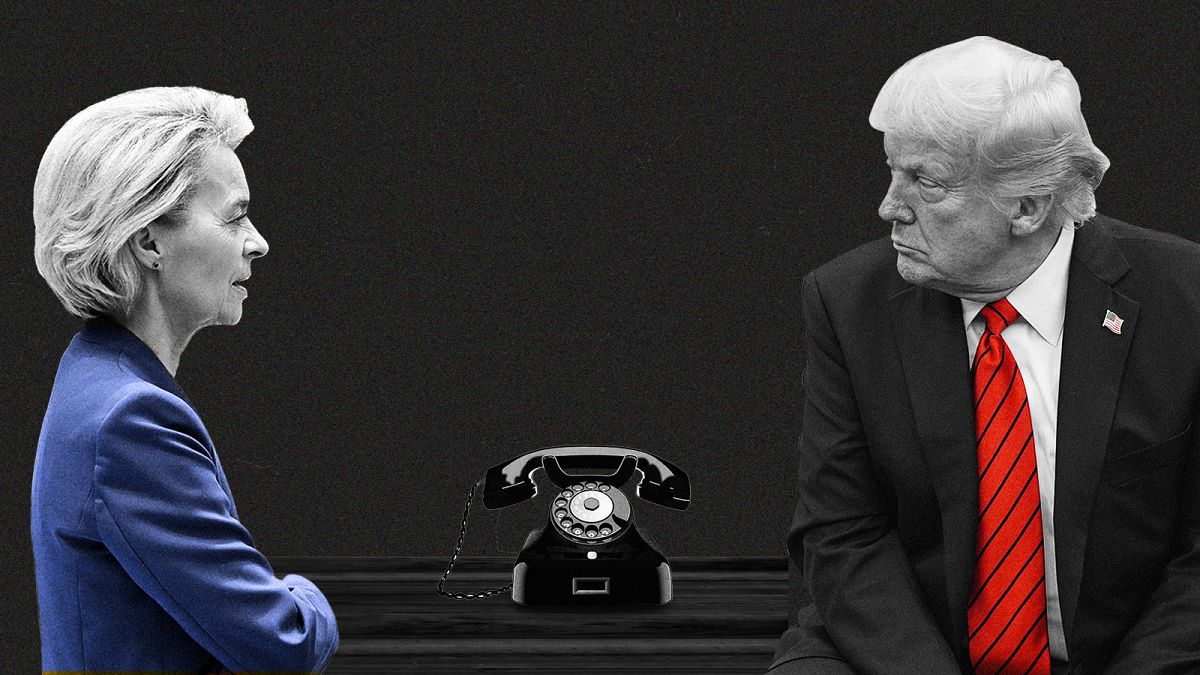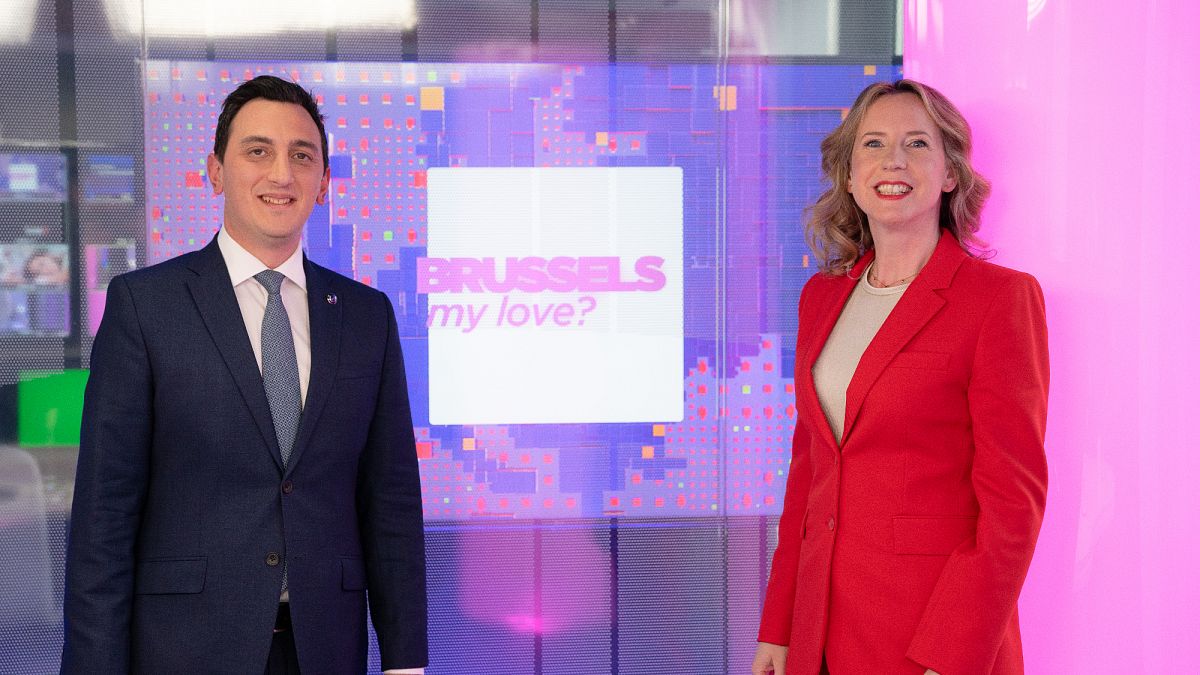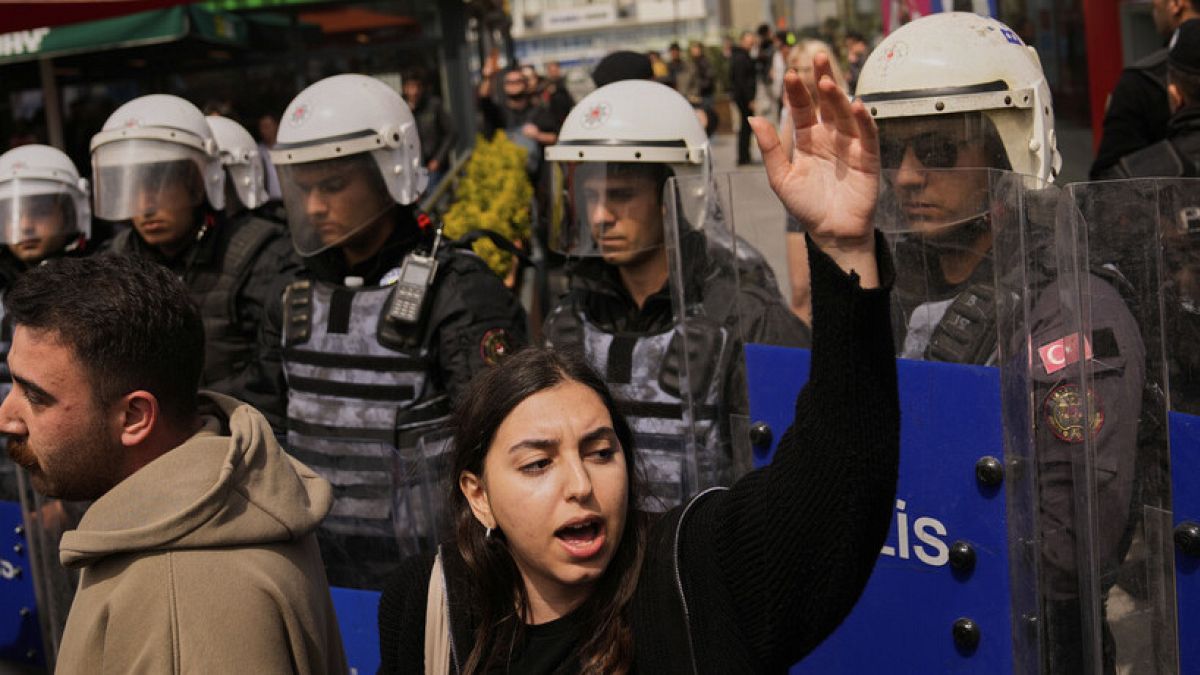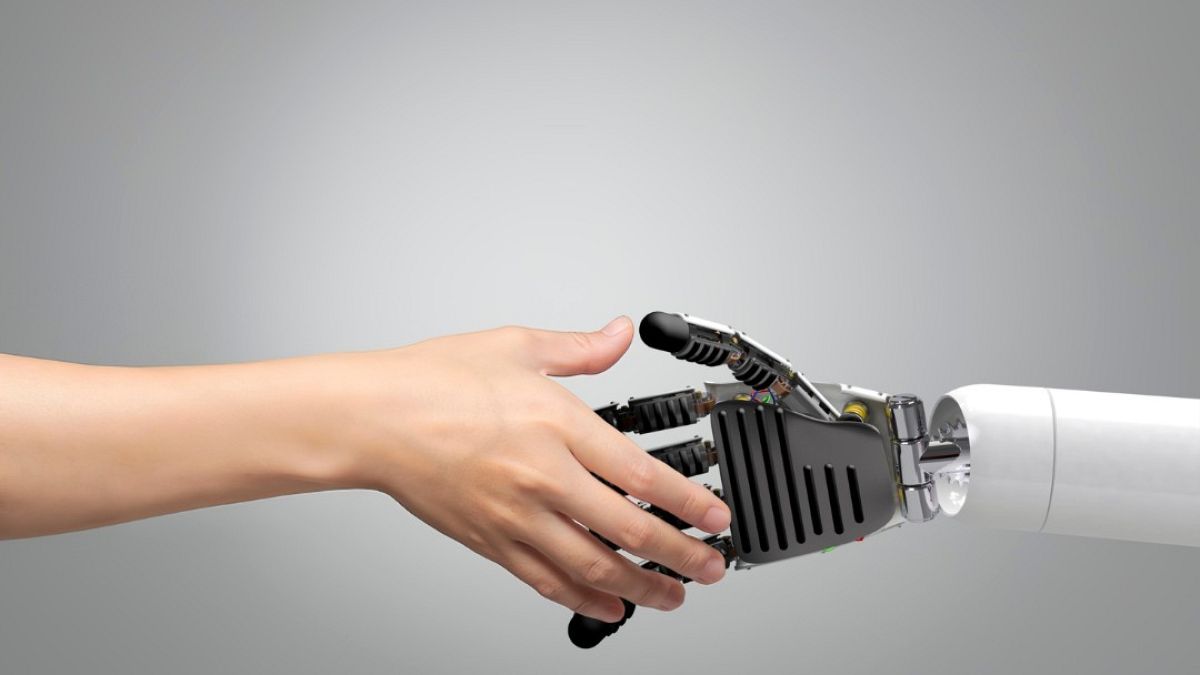In their living room in South Korea, a father is using generative artificial intelligence (genAI) to turn his son's drawings into video clips and short stories as a new kind of playtime takes shape.
Each week, the Kim family goes to the library to choose a book. They read it together, discuss a topic of interest, and build background knowledge.
Knowing young children can’t engage with AI tools independently, father Kim Jungu prepares a short, 30-minute AI session by writing tailored prompts in advance.
During the session, his five-year-old son Dohun engages with the AI through creative activities, such as designing an imaginary planet or writing a story set in the Orion constellation.
The AI tutor contributes by asking follow-up questions and offering new information related to the topic.
"He really enjoys what I found because every time, the AI gives very interesting questions to him and also some great mathematical or scientific knowledge. So I believe that he feels he learns something every week," Kim, who works as a Chief Product Officer (CPO) at an IT firm, told Euronews Next.
Dohun loves space and drawing. Kim believes AI is a useful tool that can answer questions parents can’t and helps his son to "explore his imaginations and creativity".
"I can see that his agenda is expanding. Last week, we explored solar systems. But right now, he is exploring the outer side of the solar system. AI continuously gives him some of the seeds of the idea," he added.
While he thinks that it’s positive that AI can help expand children’s knowledge, he is aware of an overreliance on the technology.
"It’s also important that they don’t become overly dependent on it. As a parent, I think about how to guide that process carefully. Managing personal learning data is another concern," Kim said.
Critical thinking is key
AI education experts say the most important thing is the play itself, and parents should be mindful that the intensity of a session is appropriately timed according to their child’s age.
"They could just as well be playing with Legos…" Kwon Jungmin, a professor who specialises in AI education at Seoul National University of Education, told Euronews Next.
"In my perspective, what they're playing with doesn't really matter as long as they're building a good relationship [even if] they're using AI as a medium," she continued.
"But if it was more frequent or if it was maybe more than two hours per day, that might be too much. It depends on the child's age and their interest".
Kwon says parents should make sure their children can discern between AI and humans.
"If the child is playing with AI by themselves, then that might be a problem because they would think that, for example, ChatGPT is a real living being," Kwon said.
"But when a parent is involved, what the parent thinks and how the parent interacts with the AI is important because kids learn through observing. So you have to watch really carefully what they're doing with AI, what the parents and the child are doing with AI".
Kwon says the focus should not be on AI alone. Instead, education in the AI era should nurture critical thinking by teaching kids subjects like humanities, literature, and philosophy.
"What is more important is how does that child view ChatGPT," Kwon said.
"If the child does not have any educational experience on learning about how to view these technologies, then the child will just view it as someone with greater power and knowledge, and that will eventually lead to obeying the technology," she added.
"However, if the child has educational experience and learning about the philosophies; what is a human being? What does it mean to be living? What does it mean to be a human? With all that background knowledge and critical thinking, that child's perspective of AI will be very different from a child who has never learned about it. And that's the kind of people that we need right now".
Rising pressure from the private education sector
Across South Korea, interest in AI education is booming. While some families like the Kims are exploring more organic, play-based approaches at home, schools, and private academies are integrating coding and AI literacy into their curricula.
Some are also using AI tracking systems to follow students’ learning progressions.
"The Korean private education market is big… that sector exists solely for college entrance exams. The college entrance exam is very important in Korea because it decides the social status of where you're going to be. So people, they invest a lot of money in their children's education so they could [reach a] higher status," Kwon said.
In Europe, the EU's recently adopted AI Act - scheduled to come into effect from August 2027 - classifies AI systems as high risk for some areas of education, such as systems to evaluate learning outcomes, assessment of educational levels, and detection of students' prohibited behaviours, according to a report from the European Parliamentary Research Service.
For Kim, it’s not about teaching technology early. It’s about creating space for his son to imagine, combine ideas, and explore.
While experimenting with AI playtime at home, he began noticing how quickly private education was turning AI into a high-stakes race.
He says the private education sector’s messaging, warning that kids without AI skills will be left behind, is rooted in fear.
"It’s not about starting early out of fear," he wrote in a Treads post where he shares his AI playtime experience with other parents.
"It’s about nurturing creativity - exploring, combining, imagining. That matters more than the technology itself".
Instead, he believes in open dialogue and experience sharing in a system that leans heavily toward university admission exam preparation.
"We’re living in a world that’s changing fast. And the next 10 years our kids will live through will be completely different from what we’ve known," Kim said.
"If there’s a good educational method or tool, I think it’s important not to keep it to yourself but to share and talk about it with others so we can find better directions together," he added.
Kim says he was encouraged by the number of parents who have reached out in response to the AI sessions he’s shared online.
Efforts to tackle AI divide in Europe
While concerns have been raised in Korea, Kwon thinks Europe is well placed to educate kids in AI.
"From the government perspective, the economy is important and the competition between the countries is important. However, for kids, no, they shouldn't worry about the economy," Kwon said.
"We should worry about their critical thinking, which is more similar to the European model because the European model, they think critically about AI. They're late to adopt AI. But I think they have very good philosophical grounds to develop ethical AI," she added.
In Europe, policymakers are introducing AI literacy into early education, often framing it as a foundational skill for the future.
A key goal is to ensure that access to this kind of education is equitable so that all children, regardless of background, can navigate an AI-driven world, a step UNESCO calls essential.
The UK established an independent expert committee, the AI Council, in 2019 to advise the government on the AI ecosystem. The council says its vision is "for everyone to be able to live confidently with AI".
In a report published in 2021, the council suggested that an online academy for understanding AI with trusted materials and initiatives would support teachers, school students, and lifelong learning.
Kim thinks children need to know how to communicate with AI as it will be impossible for them to avoid it from school to everywhere else.
"My idea is they need to know how they can leverage AI for their creativity and their education," he said.
"Children have really a lot of great potential. But it [can be] really hard to, as adults, to [keep up with] their potential for creativity," Kim added.
"AI could give them [children] knowledge so that they can expand their creativity. Because creativity comes from curiosity. But I believe that creativity can grow from knowledge. So I found the potential that AI could help out [with] creative growth".
For more on this story, watch the video in the media player above.

 5 days ago
10
5 days ago
10






 We deliver critical software at unparalleled value and speed to help your business thrive
We deliver critical software at unparalleled value and speed to help your business thrive






 English (US) ·
English (US) ·